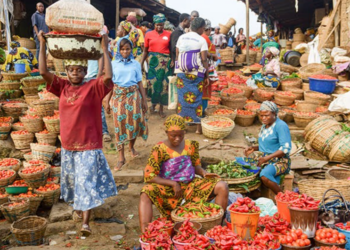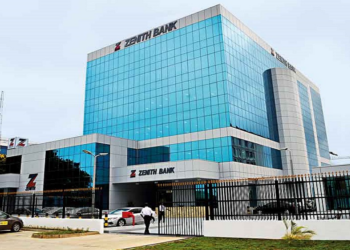- FSDH Merchant Bank has disbursed over US$3.9 million in funding to women-led businesses, including long-term and collateral-free loans.
- Through its Women in Business Initiative (WIBI), FSDH has trained over 500 businesses and supported female entrepreneurs with accelerators, coaching, and tech-readiness programmes.
- The annual WIBI Summit has engaged more than 2,000 women leaders, amplifying visibility and fostering a strong community of female entrepreneurs in Nigeria.
Across Nigeria today, women entrepreneurs are no longer just a growing part of the business landscape.
They are reshaping it.
From micro-ventures in markets to high-growth small and medium enterprises, female-led businesses are fast becoming central to employment, innovation, and economic resilience.
Yet, despite their scale and ambition, many of these entrepreneurs still face systemic challenges: limited access to affordable finance, low visibility, and weak institutional support. FSDH Merchant Bank is stepping into that gap with a clear mission — to provide financial products, capacity-building, and a community platform tailored for women, helping to transform latent potential into real economic power.
A transforming ecosystem: women at the heart of Nigeria’s MSMEs
Recent data underscores the scale and importance of women’s entrepreneurial activity in Nigeria. According to the National Bureau of Statistics (NBS), roughly 40 percent of MSMEs in Nigeria are now owned by women as of 2024.
This is not a marginal slice of the economy: MSMEs make up a substantial portion of Nigeria’s business ecosystem, contributing heavily to job creation and economic output. Yet many of these women-led businesses still remain undercapitalised and under-supported.
According to a Mastercard research earlier in 2025, 83 per cent of Nigerian women consider themselves entrepreneurs, a figure driven by financial ambition, purpose, and a desire for independence. Despite their drive, a large share of these entrepreneurs cite lack of access to finance, business skills, and appropriate support structures as critical obstacles — especially when entering formal financial systems.
Moreover, many women-led enterprises operate in the informal economy or in underserved digital spaces. A recent analysis found that a significant number of women business owners struggle to digitize, constrained by limited tech access, digital illiteracy, and high costs of tools and connectivity. These gaps make it difficult for them to scale, but they also present clear opportunities for financial institutions willing to meet them where they are.
FSDH Merchant Bank’s women-focused strategy: more than lip service
Recognizing both the scale of female entrepreneurship and the real barriers to growth, FSDH Merchant Bank has built a purposeful, multi-layered strategy through its Women in Business Initiative (WIBI). This is not just a branding effort — it is a business-driven, impact-oriented programme that seeks to unlock real financial, operational, and leadership value.
One of the most significant challenges for women-led businesses in Nigeria is access to finance. FSDH Merchant Bank’s WIBI desk has disbursed over US$3.3 million (N3 billion+) in long-term loans, structured with moratoriums, working capital support, and repayment flexibility to match business cycles. In addition, FSDH Merchant Bank has provided over US$550,000 (N500 million+) in short-term, collateral-free loans to women enterprises, offering immediate liquidity solutions with competitive interest terms.
To mitigate risk and widen its funding capacity, FSDH Merchant Bank has also partnered with development finance institutions, including a credit guarantee scheme, and engaged the AGF AFAWA Guarantee. One notable collaboration is with Nigeria’s Bank of Industry (BOI), under a concessionary loan line: women-led businesses were offered up to N100 million with a 15% interest rate over four years. That window of funds was fully utilized, and FSDH Merchant Bank is now advocating for an additional tranche. This kind of partnership underscores FSDH Merchant Bank’s belief that financing women entrepreneurs is not charitable — it is commercially viable and economically strategic.
Building capacity and leadership
Access to capital is only one part of the equation. FSDH Merchant Bank’s WIBI programme also invests heavily in capacity. Working in partnership with the Enterprise Development Center (EDC), FSDH Merchant Bank launched a Women Business Impact Programme, a three-month accelerator that equipped women entrepreneurs with financial literacy, business planning, and tailored advisory services. 25 women completed this cohort, armed with the skills to grow more sustainably.
In the tech space, FSDH Merchant Bank co-launched a Female Founders Growth Programme with the IFC (International Finance Corporation) and WEAV Capital. This initiative supported 15 female-led startups in refining business models, preparing for investment readiness, and building scalable operations. In parallel, over 100 women small-business-owners received core training in business management.
To catalyze innovation, the programme culminated in a Demo Day, granting a US$10,000 non-equity grant to one standout female-founded idea. The second cohort is set to kick off in the first quarter of 2026.
Beyond that, the WIBI Coaching Programme — launched in 2024 — has empowered dozens of women through peer mentoring, short-term training, and guidance. By 2025, its second cohort was underway, scaling both reach and depth. In collaboration with AGF and AWIEF (Africa Women Innovation & Entrepreneurship Forum), FSDH Merchant Bank is also running an Accelerator Programme designed to make 100 women-led SMEs credit-ready — helping them become investable or bankable through rigorous training.
Building a community of leaders
To deepen its impact and visibility, FSDH Merchant Bank hosts an annual WIBI Summit, timed to coincide with Women’s Entrepreneurship Day. This flagship event brings together over 1,000 entrepreneurs, executives, intrapreneurs, and ecosystem players. It provides practical sessions, peer learning, and showcases success stories — amplifying women’s voices in business.
On the 19th November, 2025, FSDH Merchant Bank will mark the 5th anniversary of the WIBI Summit. Over the years, the initiative claims to have engaged more than 2,000 women leaders, trained over 500 businesses, and disbursed upwards of US$3.9 million in total funding to women-led enterprises.
Turning potential into economic value
Why does this matter, beyond social responsibility? Because when women-led enterprises succeed, they deepen the economy in meaningful ways. Research by the International Labour Organization (ILO) shows that women entrepreneurs account for a large portion of Nigeria’s micro- and nano-business ecosystem. By strengthening those businesses, FSDH Merchant Bank is not just enabling individual success — it is helping to formalize and mainstream a vast part of Nigeria’s value chain.
Better-capitalised businesses also create jobs. Women-led firms tend to re-invest earnings into their households and communities, often yielding multi-generational benefits. As they scale, they help stabilise incomes, extend tax bases, and contribute to broader economic resilience.
The rise of the female economy is not without its hurdles. For many women, digital adoption remains a challenge. A 2025 report in media highlighted that many female entrepreneurs struggle to leverage e-commerce platforms because of the cost of data, limited digital literacy, and cultural barriers. Moreover, not all women-led MSMEs operate in formal structures, which complicates their access to institutional banking.
To sustain and deepen its impact, FSDH Merchant Bank must continue to expand not just loans, but scalable, tech-enabled products. It must also keep supporting ecosystem-building through partnerships — with DFIs, global organisations, and government agencies — to build credit-guarantee programs, mentorship networks, and market access pipelines.
A vision for the future
FSDH Merchant Bank’s model — combining finance, coaching, and community — offers a replicable blueprint for how banks can contribute meaningfully to the female economy. By pairing cost-effective credit products with structured mentorship helps women overcome both financial and non-financial barriers.
In a country where 40% of MSMEs are women-owned and where over 80% of women believe they are entrepreneurs, FSDH Merchant Bank’s interventions matter not just for equality, but for economic growth. The financial institution is essentially turning its gender lens into a business opportunity — identifying, nurturing, and scaling the next generation of female-led enterprises.
If more institutions followed this path, Nigeria’s female economy would be well-positioned not just as a social good, but as a growth engine.




















